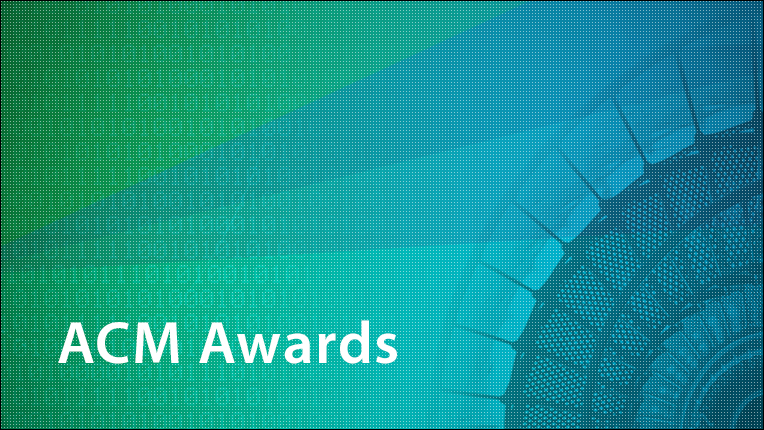ACM Frances E. Allen Award for Outstanding Mentoring
How to Nominate
Overview
The “ACM Frances E. Allen Award for Outstanding Mentoring” is presented biennially to an individual who has exemplified excellence and/or innovation in mentoring with particular attention to recognition of individuals who have shown outstanding leadership in promoting diversity, equity, and inclusion in computing. The award is presented at the ACM Award Banquet and is accompanied by a prize of $25,000 to the awardee, and an additional $10,000 cash contribution to an approved charity of the awardee’s choice. Financial Support is provided by Microsoft Research.
Next Deadline
December 15, 2025 - End of Day, Anywhere on Earth (AoE), UTC -12 hrs.
Selection Criteria
Nominations will be reviewed for the quality, breadth, and impact of the candidate’s mentoring contributions to ACM and its community. That impact might be, for example, on the basis of single but very important contribution, activities that have served a particularly broad community of beneficiaries, or a sustained record of contributions over many years. This impact could include, for example, mentoring of significant numbers of students who have successfully completed their degree in computing and have gone on to careers in industry or academia. Alternatively, that impact might take the form of mentoring early career professionals in either academia or industry who have had career interruptions or who experience a significant work change as may be the case for new industry hires immediately following their degree completion. Evidence should be presented of mentoring whose impact significantly exceeds what might normally be expected.
Submissions
Nominations for the ACM Frances E. Allen Award should be submitted using the online nomination form. Guidelines for nominators and endorsers can be found here. Each nomination involves several components:
- Name, address, phone number, and email address of nominator (person making the nomination). The most appropriate person to submit a nomination would be a recognized member of the community who is not from the same organization as the candidate.
- Name, address, and email address of the nominee(s) (person(s) being nominated). It is ACM's policy not to tell nominees who has nominated or endorsed them.
- Suggested citation if the nominee(s) are selected. This should be a concise statement (maximum of 25 words) describing the key technical or professional accomplishment for which the nominee merits this award. Note that the final wording for awardees will be at the discretion of the Award Committee.
- Nomination statement (200-500 words in length) addressing why the nominee(s) should receive this award. This may describe the nominee's or nominees' work in general, but should draw particular attention to the contributions that merit the award.
- Copy of the candidate’s CV, listing publications, patents, honors, service contributions, etc.
- Supporting letters from mentees and colleagues. Given that the contribution can take many forms, these supporting letters should make explicit the nature of the impact in terms of training provided, impact on scholarship, other professional opportunities, of other dimension of mentorship. Letter writers are encouraged to use specific examples in their letters. In addition, each letter must include the name, address, and telephone number of the endorser, and should focus on the accomplishments which that endorser can attest to and place in context. The nominator should collect the letters and bundle them for submission. Both Mentees and Endorsers will receive an email from [email protected] containing a secure link to the Code of Ethics attestation form, and will be required to indicate whether they are aware of any actions committed by the candidate that violates ACM's Code of Ethics or Core Values.
- A maximum of 5 supporting letters should be obtained from individuals mentored by the nominee.
- A maximum of 3 supporting letters should be obtained from supervisors or colleagues familiar with the impact of the nominee’s mentoring.
For questions on the above, please contact us at [email protected], or Jade Morris, ACM Awards Committee Liaison. ACM's conflict-of-interest guidelines apply to all award nominations.
Honors Policy for Nominators and Endorsers
Nominators and endorsers for all ACM Awards will now be required to indicate whether they are aware of any action committed by the candidate that violates the ACM Code of Ethics and ACM’s Core Values. See the Policy for Honors Conferred by ACM.
CORE VALUES
- Technical excellence
- Education and technical advancement
- Ethical computing and technology for positive impact
- Diversity and inclusion
GENERAL ETHICAL PRINCIPLES
1.1 Contribute to society and to human well-being, acknowledging that all people are stakeholders in computing.
1.2 Avoid harm.
1.3 Be honest and trustworthy.
1.4 Be fair and take action not to discriminate.
1.5 Respect the work required to produce new ideas, inventions, creative works, and computing artifacts.
1.6 Respect privacy.
1.7 Honor confidentiality.
For questions on the above please contact [email protected]
ACM Honors & Ethics
ACM formally recognizes individuals for significant contributions to the field, ACM, or its interests. This recognition includes ACM Awards, Advanced Member Grades, and SIG Awards, collectively termed Honors. ACM expects individuals it honors to abide by the ACM Code of Ethics and Professional Conduct. Learn about the Policy for Honors Conferred by ACM.
